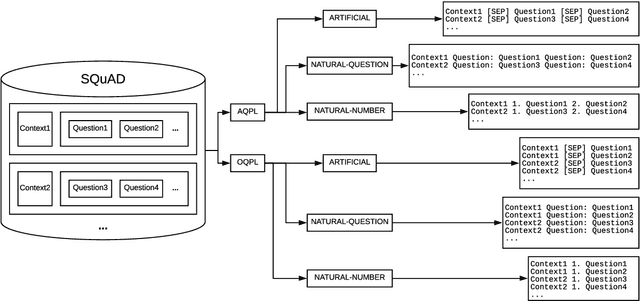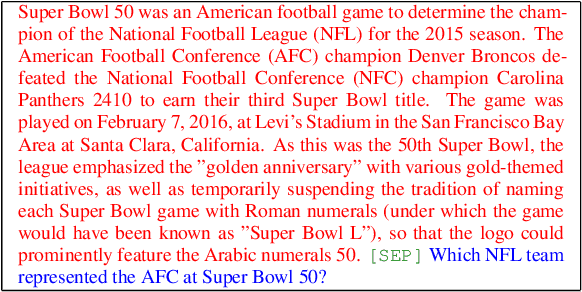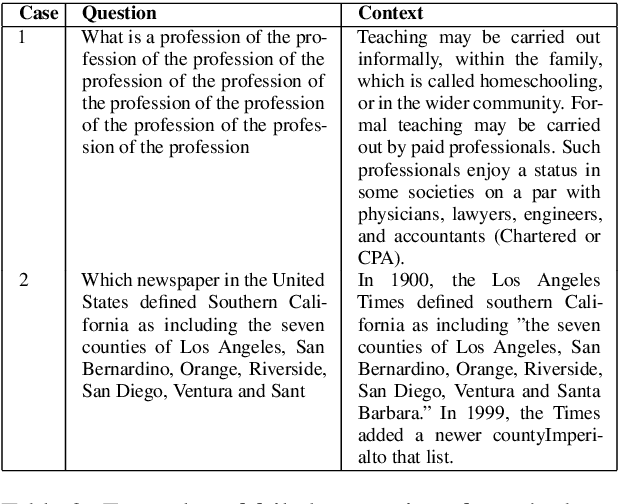Luis Enrico Lopez
Transformer-based End-to-End Question Generation
May 03, 2020



Abstract:Question Generation (QG) is an important task in Natural Language Processing (NLP) that involves generating questions automatically when given a context paragraph. While many techniques exist for the task of QG, they employ complex model architectures, extensive features, and additional mechanisms to boost model performance. In this work, we show that transformer-based finetuning techniques can be used to create robust question generation systems using only a single pretrained language model, without the use of additional mechanisms, answer metadata, and extensive features. Our best model outperforms previous more complex RNN-based Seq2Seq models, with an 8.62 and a 14.27 increase in METEOR and ROUGE_L scores, respectively. We show that it also performs on par with Seq2Seq models that employ answer-awareness and other special mechanisms, despite being only a single-model system. We analyze how various factors affect the model's performance, such as input data formatting, the length of the context paragraphs, and the use of answer-awareness. In addition, we also look into the modes of failure that the model experiences and identify the reasons why it fails.
 Add to Chrome
Add to Chrome Add to Firefox
Add to Firefox Add to Edge
Add to Edge